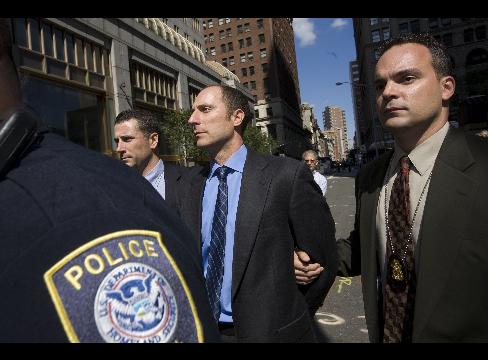Why They Should Not Be Arrested - Part 10 (Final)
 Wednesday, July 17, 2013 at 12:18PM
Wednesday, July 17, 2013 at 12:18PM This series was written in reaction to the repeated suggestions - the flow of which has barely abated over the nearly two years since the series started - that the Irish banking disaster was the result of criminal activity. These suggestions have substantial emotional weight, but little else. (No, the almost universally misunderstood and massively over-interpreted "Anglo Tapes" do not affect this conclusion).
Our society is, however imperfectly, one which is governed by the Rule of Law. This is a good thing, because the alternative is government without defined formal rules. In the absence of such rules, government is dictatorship: s/he who has power will do whatever s/he wishes.
It is really quite extraordinary that so many people, including lawyers, while quite convinced that a myriad of criminal offences caused the banking disaster, are utterly unable to name a single one of those supposed crimes, even in private. In private, and sometimes in public, they will blithely recite the names of the alleged criminals, but cannot associate an alleged crime with any of them ! Pressed, the words "Madoff", "Iceland", and sometimes even "Mozilo" come up, but misdeeds comparable to any of those have not been exposed in Ireland (and Madoff was not a banker).
Of course, crimes *did* occur (this, for example), and were not beneficial, but they were not significant contributors to the collapse. Lurid tales of misbehaviour also circulate, but where they are credible, the behaviour was not criminal, and where the misconduct alleged is of a criminal character, the evidence is not credible. Maybe, credible evidence will emerge some day, but after five years, many enquiries, formal and informal, and my own challenge, I trust that you will appreciate why I am now extremely sceptical.
Indeed, I am forced to conclude that the calls for bankers to be jailed are entirely emotional in nature. While the emotion is understandable when the damage is so enormous, as a guide to action, it is no substitute for rational consideration of the facts. When a loved one is killed in a road traffic accident, it is natural that we react by seeking someone to blame, and, if any plausible culprit is identifiable, it is commonly difficult to avoid being led by our emotions into the belief that s/he is guilty of murder.
However, history tells us that this way injustice lies, and this is bad for everyone. Remember the Guildford Four and the rest ?
And so to finally close this series, I reiterate that they should not be arrested because
- No unconvicted person should be arrested ever unless, and to the extent that, it is necessary in order to ensure that they turn up for a trial. Arresting "for questioning" is just an unpleasant relic of the "Dark Ages", whose effect - and often its purpose - is to smear the person arrested and/or to intimidate or entrap him into a confession, false or otherwise
- However, even if the question is "should they be imprisoned ?", I still say not, until or unless something new turns up.
- "Something new" means an actual crime known to the law with which they could be charged, tried and, if convicted, sentenced.
That does not mean that they should get away with it altogether, but let's be clear what "it" is.
Imprisonment is what happens to people who have been convicted at the end of a process which starts with the laying of a charge. The charge will name the accused, describe his or her behaviour and assert that this behaviour was a breach of a very specific provision of the criminal law. Evidence is then produced and tested, the law is applied to the evidence, and a jury decides if the accused is guilty as charged. Until a jury does so decide in any person's case, that person is entitled to the presumption of innocence. Note also that, even if a jury does declare him or her guilty, the guilt is not comprehensive - the person is convicted of a specific charge, not of every crime committed by everyone who ever lived.
Contrary to a popular meme, the population is not divided into a huge law-abiding majority and a minority of evil people who only occasionally get caught. The truth is that probably every citizen regularly - but usually unconsciously - breaks some provision of the criminal law with impunity.
In the case of the Irish bankers, while I am now very sceptical of their guilt of relevant criminal offences, I remain of the belief that the law applicable to directors of failed enterprises should take its course, and I will refer you again to the Open Letter in this connection.
Note: I am not arguing for or against the idea that Seán FitzPatrick or his co-defendants, if convicted, should be imprisoned. My position, based on current information, is that their alleged crimes did not cause the banking disaster. This series only concerns itself with conduct that led to that event.

